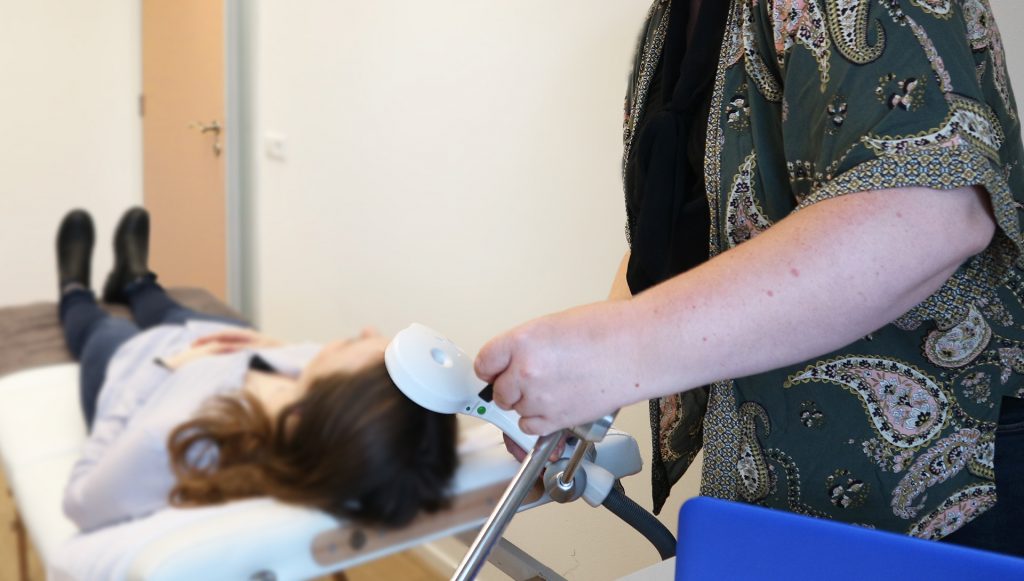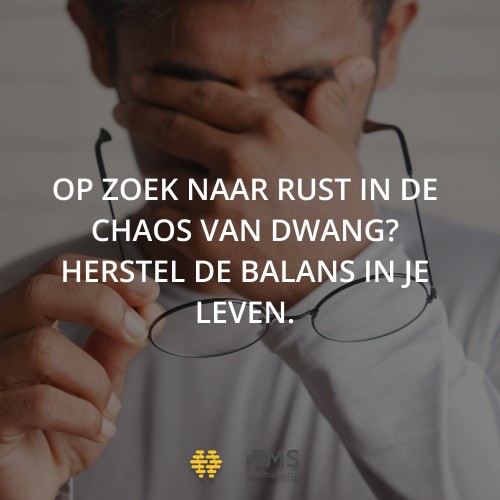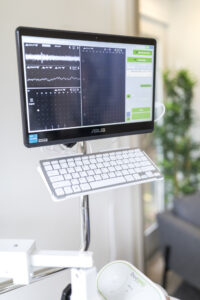OCD and depression
What is OCD?
An obsessive-compulsive disorder (OCD) can manifest in different ways. You feel trapped in a constant loop of thoughts that won’t let go. Small doubts grow bigger, until they take over. You try to control them, but they keep coming back, stronger each time. You repeat actions, afraid of what might happen if you don’t. It feels like you’ve lost control, like you’re stuck in an endless cycle you can’t break. Finding peace becomes difficult, because the smallest tasks feel like overwhelming challenges.

When is it considered OCD?
With OCD, you feel trapped in repetitive thoughts and behaviors that are difficult to stop, often against your own will. You feel compelled to perform certain actions over and over again, such as checking or organizing items, in an attempt to reduce anxiety. This cycle doesn’t just affect your work or studies, it affects personal relationships and your overall well-being. Simple tasks like household chores or personal care can become difficult to complete due to the pressure of obsessive thoughts telling you it has to be done “the right way.”
Obsessive Compulsive Disorder is diagnosed and treated by specialized healthcare professionals, such as psychiatrists, psychologists, and therapists. The diagnosis is based on the frequency of obsessive thoughts and compulsive behaviors and how much they interfere with your social life and work functioning. Causes can range from genetic predisposition to chemical imbalances in the brain, trauma, or major life events.
OCD can affect anyone, regardless of age or background. It can deeply affect your daily life and take a serious toll on your emotional well-being. It can range from mild to severe, but it consistently interferes with everyday routines. Seeking help is important so you can receive the right treatment and regain control.
How does the brain function in people with OCD?
Disrupted communication between brain regions
In OCD, there is a disruption in communication between different brain regions responsible for thoughts, emotions, and behavior. The orbitofrontal cortex, which helps process uncertainty and make decisions, is often overactive. This can lead to obsessive thoughts, such as excessive worry about certain actions or situations. At the same time, the caudate nucleus, which plays a role in regulating habits and filtering out unnecessary actions, tends to function less effectively, making it difficult for the brain to distinguish between important and unimportant signals. The amygdala, involved in processing emotions like fear, is also often hyperactive, further intensifying anxiety and obsessive thoughts.
Brain chemistry and reduced self-control
Reduced activity in the prefrontal cortex, responsible for self-control and decision-making, makes it harder to suppress obsessive thoughts and stop compulsive behaviors. An imbalance in serotonin contributes to repetitive thoughts and actions, while dopamine dysregulation may fuel compulsive behavior. Together, these factors create a vicious cycle of obsessions and compulsions that is difficult to break.
rTMS for OCD and depression
The treatment of OCD and depression can include therapy, medication, lifestyle changes, or a combination of these. A compulsive disorder, also known as obsessive-compulsive disorder, involves coping with anxious thoughts or feelings in a maladaptive way.
With long-term positive effects, rTMS is a true breakthrough for those struggling with OCD and depression. rTMS targets specific areas of the brain, which can help alleviate OCD-related symptoms.

Untethered from the grip of compulsion
Obsessive thoughts
If you suffer from OCD, you know that the obsessive thoughts themselves are often senseless. You realize that these thoughts don’t come from outside, but that you create them yourself. These thoughts often go beyond regular worry on everyday matters. They can be about things like illnesses, dirt, God, sex, your own aggression, or fear of making mistakes with serious consequences.
Obsessive thoughts typically trigger anxiety. To reduce that anxiety, you engage in certain actions, but unfortunately, these are only a short-term solution. Common obsessive thoughts might include harming others, violent thoughts, blasphemous thoughts, or doubts about whether you said something wrong. Doubts about your sexuality can also manifest as obsessive thoughts (H-OCD).
Compulsions
Common compulsions include checking and cleaning, as seen in contamination fears. Compulsive behaviors can also occur in your thoughts, like needing to count things or repeatedly praying. By performing these actions, you believe the anxiety you fear won’t occur.
For example, if you’re afraid of contamination, you might clean your hands, arms, clothes, or even the whole house in specific ways. If you’re afraid of disasters, you might constantly check lights, faucets, outlets, gas knobs, or bank statements. Touching objects, arranging items symmetrically, collecting stuff, or repeating actions are also common compulsive behaviors.
Treatment and results with rTMS
At rTMS International, treatment typically consists of 30-50 sessions. This amount is necessary to achieve long-term results. Many people notice positive effects after about 15 sessions. Before starting treatment, we arrange an initial consultation with you. This conversation helps us get a clearer picture of your compulsive-related issues.
Frequently asked
Wanneer er sprake is van een therapie resistente depressie en je voor volledige vergoeding in aanmerking wilt komen, dan is er een verwijzing van de huisarts of psychiater nodig.
Wanneer je liever anoniem behandeld wilt worden, zonder dat de huisarts of zorgverzekeraar afweten van jouw klachten, dan is er uiteraard ook geen verwijzing nodig.
Ook dan geldt dat er sprake moet zijn van een therapie resistente depressie of dwangstoornis.
Op de vestigingenpagina zie je de actuele wachtlijst per vestiging.
rTMS is een techniek die eind jaren 1990 werd geïntroduceerd als behandeling voor depressie.
Sindsdien is wetenschappelijk en klinisch onderzoek uitgevoerd om de veiligheid van de behandeling vast te stellen en de meest effectieve protocollen te onderzoeken.
Vast is komen te staan dat rTMS een veilige methode is die bij een groot deel van de cliënten bijdraagt aan het verminderen van depressie en/of dwang gerelateerde klachten.
Verschillende publicaties laten zien dat cliënten met de diagnose “therapieresistent” positief reageerden op behandeling met rTMS. rTMS is sinds 2008 goedgekeurd door de FDA (Food and Drug Administration).
Een behandeling met rTMS wordt doorgaans goed verdragen en heeft weinig tot geen bijwerkingen. Je neemt plaats op de behandelstoel waarna de spoel die de magnetische pulsen afgeeft tegen jouw hoofd wordt geplaatst. Door de magnetische pulsen worden bepaalde hersengebieden gestimuleerd.
Een behandeling met rTMS kan lichte spanningshoofdpijn veroorzaken na afloop van de behandeling. Om dit te ondervangen kun je eventueel vooraf een paracetamol nemen.
Transcranial Magnetic Stimulation

